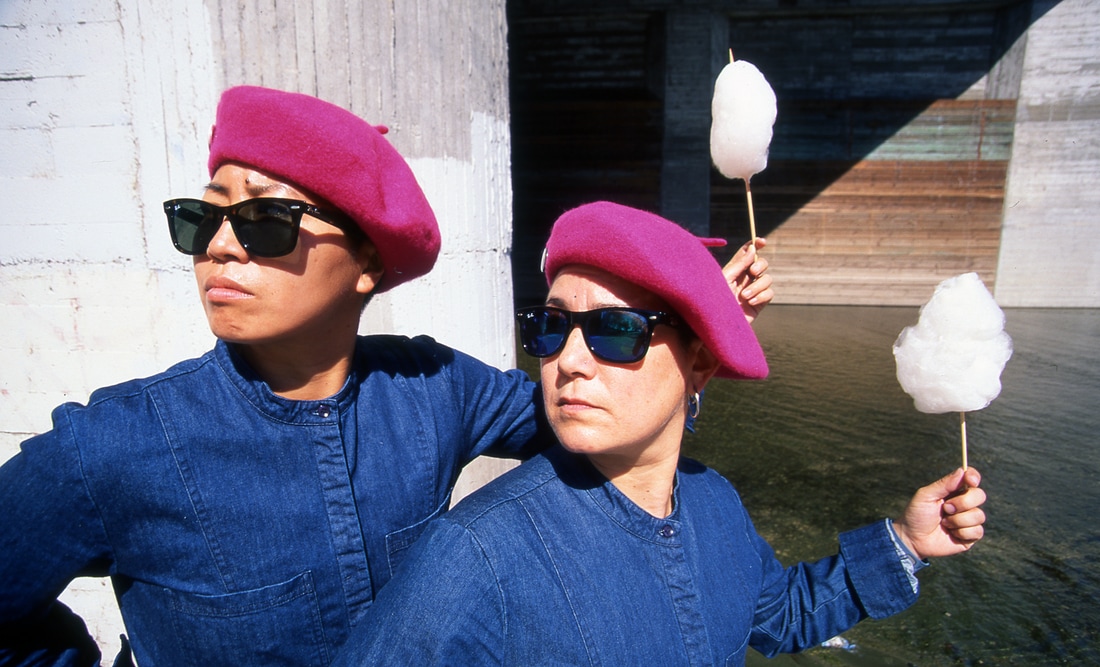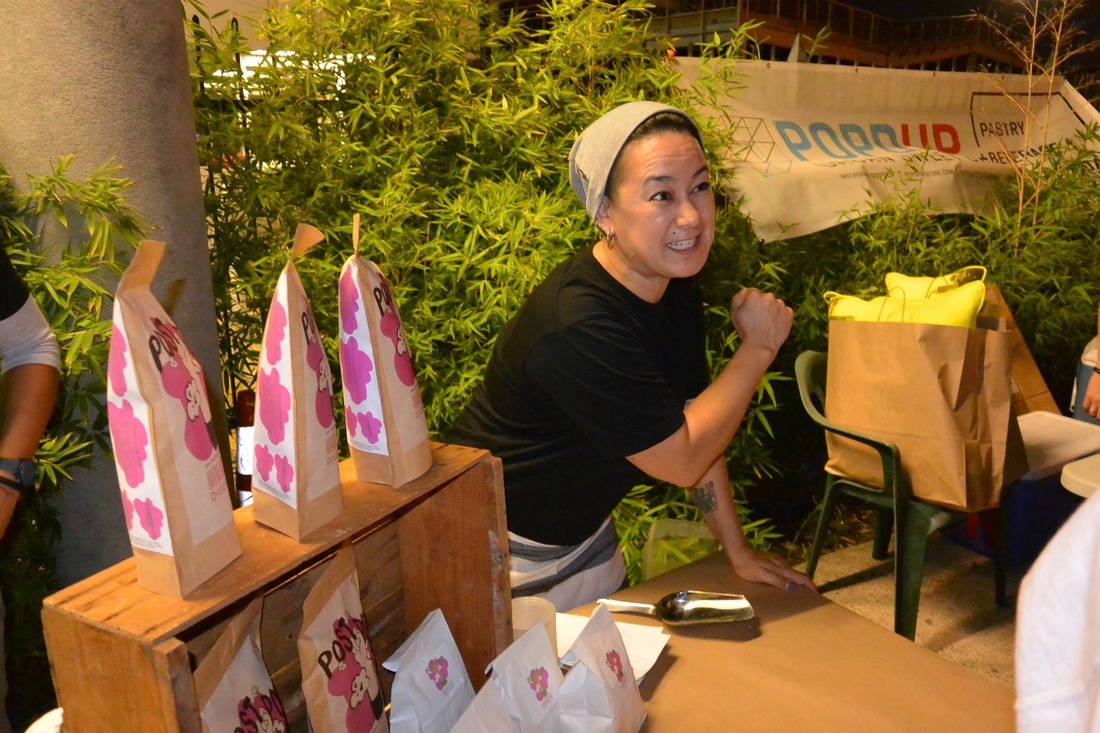In June 2015, the Center for Cultural Innovation (CCI) awarded $100,000 in grants to eight Los Angeles-based creative businesses, from a pool of 90 applicants, through its Creative Economic Development Fund (CEDF). Among the grantees, GEO’s Emporium was awarded $12,500.
As described in the first post on Los Angeles, the Center for Cultural Innovation (CCI) worked with the Surdna Foundation and the Los Angeles Department of Cultural Affairs (DCA) to create the Creative Economic Development Fund (CEDF), which provides funding to launch, enable, and expand micro-sized creative enterprises in Los Angeles. In the follow-up post, we described how the work of CEDF grantee, Public Matters, fits the blend of culture and economic development work that CCI is exploring through the work of the Creative Industries Incentive Network (CIIN) fund, while challenging both the conventional definitions of art, and traditional boundaries of arts funding. In this post, we’ll explore the work of their fellow CEDF grantee, GEO’s Emporium, led by Genevieve Erin O’Brien.
O’Brien certainly knows something about the stereotypical LA multihyphenate lifestyle: she identifies as a “Queer Vietnamese/Irish/American artist, culinary adventurer, community organizer, and educator.” She holds an MFA in Performance from the School of the Art Institute of Chicago, was a 2009 Fulbright Fellow in Vietnam, and is a lecturer in Asian American Studies at Claremont Colleges, UC Irvine, and UC Santa Barbara. O’Brien uses performance, video, and installation to explore the ways that race, ethnicity, gender, sexuality, class, and spirituality shape the notions of home, memory, community, and authenticity.
Food is a common thread in her work. It serves as an anchor to her community development concepts, and as a springboard for explorations regarding memory, nostalgia, and the appropriation of identity and culture. Her projects are highly conceptual performances that happen to use food as a medium for alternative forms of storytelling. Meat My Friends is a creative exploration of artisanal sausages made with proprietary spice blends like “Mexirean” (Mexican + Korean), “Chimaican” (Chinese + Jamaican), and “Blackanese” (Black + Japanese) that serve as both homage to O’Brien’s family and Los Angeles upbringing, and as a playful invitation to explore feelings about mixed race and ethnicity.
Similarly, GEO Post Pop uses provocatively-named popcorn as a gateway to open discussions about radical politics. Flavors like “Orientalize This!” (“There’s nothing subservient or demure about this flavor […] sweetness with an unexpected kick and a queer twist of yuzu”), and “Curry’O!” (“Inspired by the revolutionary spirit of the global south […] curry dominates the English cheddar this time”) manage to be both in-your-face and inviting at the same time. O’Brien’s most recent project, Sugar Rebels, is an even deeper conceptual dive inspired by the politicization of the global environmental crisis. The concept combines theatrics, comic art, and spun-sugar candy to tell the story of O’Brien’s post-apocalyptic vision, and it ends with a call for commitments to change.
O’Brien’s previous wins in acquiring grants have largely been filed under “either/or” definitions of her work. Her CEDF grant is unique, of course, in recognizing the holistic nature of her work. The funds have been applied to the usual artistic practice categories (space rental, web development, social media) and also to typical business startup activities (packaging, production, permits and licensing, kitchen facilities, and training and development for three staff and five volunteers). As O’Brien explained:
“Starting a small business is already overwhelming, especially in the foodservice industry. But maintaining ethics and conscious business practices at the same time makes it even more difficult. The CEDF grant helped with all the normal activities of building presence, process, and people, but it specifically offered me the opportunity to put the ethical tenets of my business model into practice. I spent countless extra hours training and developing an employee that was houseless as a direct result of her transgender identity. She could have been part of the 47% of queer, non-gender conforming, and transgender workers who are not hired, are denied promotions, or face rampant workplace discrimination. Committing to her as an artist and employee is not a decision I could have made without alternate sources of support.”
The grant has also given her the space to magnify her work beyond her practice. Thanks to subsidized overheads, O’Brien has been able to contribute back to local community organizations and social justice movements by feeding their memberships, or offering fundraising opportunities to help them build sustainability. She has specifically catered to underserved groups such as the LGBTQ community, the Asian American Community, and the Vietnamese American Community.
“I don’t have the time–or in my late forties, the stamina–to camp out in front of City Hall all the time, but I show support through my artistic medium, which is food”, O’Brien said. “I’ve been coordinating getting leftovers from restaurants and caterers lately. My friend will be like, ‘I have 10 pounds of lamb shoulder’–I take it, I make tacos for a volunteer-organized planning session. Or I’ll cater a whole fundraiser…I do the food, I do my thing, I tell stories about how the recipes came about and how it connects to their work, then we feed everyone…and then they do a hard pitch when everybody is feeling good. It’s all connected. The art is the political is the personal. I can’t forget that when I’m out there serving people I look like this: I am mixed race, I’m genderqueer, I’m non-gender conforming. Thankfully, humor is a great bridge, and my food and my art are funny! People that would never want to talk about Asian American feminism are like, ‘damn, what’s in this,’ which starts a conversation…I’m trying to grow several trees with one seed.”
It’s clear that O’Brien’s work doesn’t fit neatly into the categories of either pure art or pure commerce. She struggles, instead, with the challenges of developing and sustaining both. Her CEDF grant is unique in recognizing the holistic nature of her work. The guidelines expand beyond a single definition or expectation of studio practice, which allows grant recipients to include their personal and political identities as legitimate parts of their artistic identity and practice. In other words: to bring their whole selves to work; a familiar and reasonable aspiration for any modern worker.
“Traditional funding is hard for me. My ‘expected outcome’ is nourishment and a new level of global consciousness. This is the challenge for all practitioners who work outside of The White Cube. I blur and queer those boundaries all the time: ‘where’s the art?’ You just ate it!”

